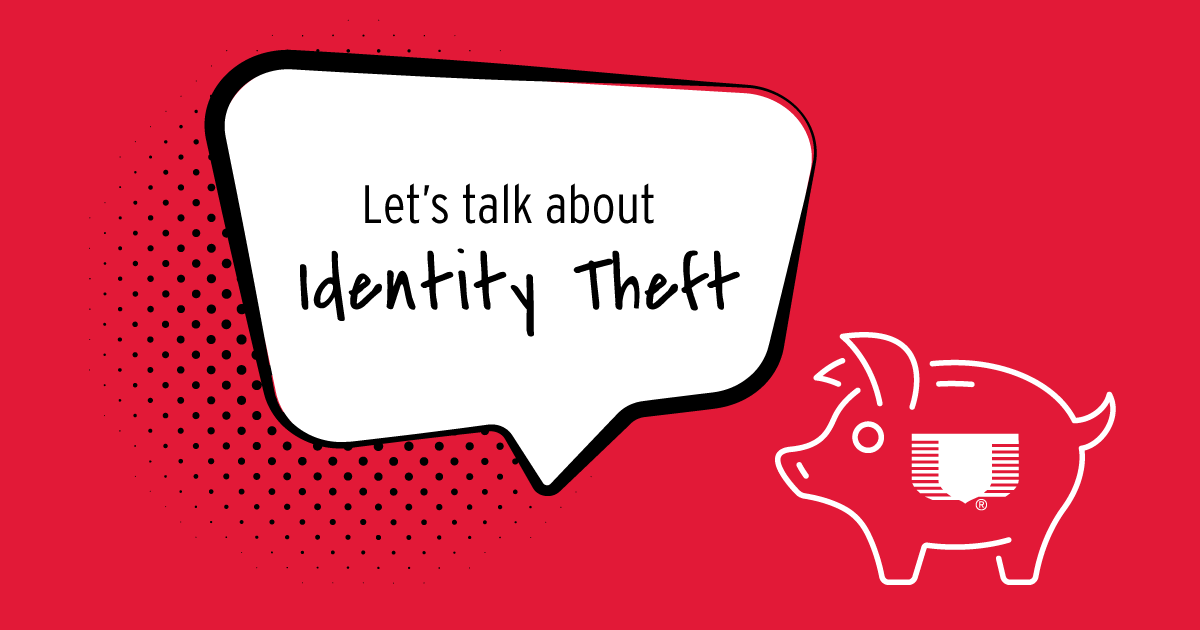 Search
Search WelcomeWelcome Login
WelcomeWelcome LoginNovember 9, 2021

We want to help you start talking to your family about important financial topics! Read on for conversation starters, key words, talking points, and real world applications about identity theft and how to prevent it!
What to Ask:
• How might someone who is trying to steal your identity do it?
• Do you know what it looks like when your social media (e-mail, Facebook, Twitter, Instagram) accounts are hacked? Do you know how to protect yourself from being hacked?
• What are some things that might make you think that a text message is from a fake business or person?
When to Ask:
• If you receive a fraudulent text message or voicemail
• When filling out paperwork (at the doctor’s office, school, or online)
• When discussing tablet/phone usage and social media dos and don’ts
Key Terms |
What does someone do when they commit identity theft?
Unlike your fingerprints, which are unique to you and cannot be given to someone else, your personal data can be used to personally profit at your expense. They may use this data to:
• Get into your bank accounts and steal your money
• Use your name to open up credit cards and run up the bills
• Set up utilities and rental agreements using
your name
• Take out a loan in your name
How do you protect your identity online?
Use Internet passwords that would be difficult to guess and change them regularly. Strong passwords typically have unusual combinations of upper- and lower-case letters, numbers and symbols.
Beware of an incoming e-mail or text message that asks you to click on a link. It may install malicious software, called “malware,” that could allow crooks to spy on your computer or mobile device and gain access to your online banking sites.
Be especially careful when using social networking sites. Fraud artists can use these sites to gather personal information about you, such as your date of birth, your mother’s maiden name, and family names that can help them figure out your passwords.
Finding Fraud: When you see an account that has been hacked on your own social media feed, or a phishing e-mail designed to get money, point it out to your child and explain methods of protection.
Shopping Shadow: Allow your child to “shadow” you or look over your shoulder as you make an
online purchase. Point out the safety features of the purchasing site when it comes to protecting their purchases.